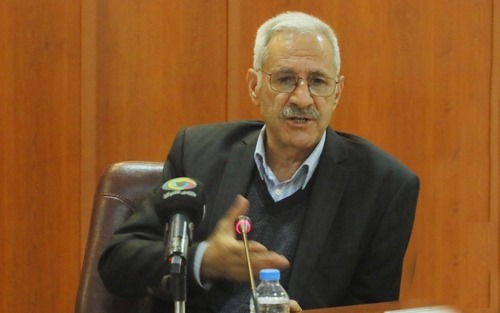By Khalil Atach*
Regarding the “resumption of the peace process in Turkey,” I argue that this so-called peace process lacks clear direction. Why did this process suddenly start with just one statement from Devlet Bahceli: “Let Abdullah Ocalan come to parliament and announce the end of war and start of peace”? Why didn’t the Turkish state initiate the peace process earlier?
The real reasons behind discussing the “peaceful resolution of the Kurdish issue in the north” can be attributed to several key factors:
- The Israel-Hamas war, ongoing for over a year, has expanded to include conflicts between Israel and Lebanon, Syria, Iran, and Iran-backed armed groups in Iraq. Within this expanding conflict, Turkey senses significant threats to itself in the Middle East’s changing dynamics and seeks to develop strategic plans.
- Turkey’s economy continues to deteriorate, with ongoing military operations against the PKK and Rojava further straining its finances. Turkey needs to find new avenues to revitalize its economy.
- Domestically, Recep Tayyip Erdogan’s political influence has weakened. Voting patterns among both Turkish and Kurdish communities have left him discouraged, which he views as a genuine threat to his future and seeks to address through any means.
These factors suggest that what’s called the “peace process” is neither Bahceli’s nor Ocalan’s project, but rather Turkey’s state initiative. The deep state run by Erdogan and Bahceli has realized it cannot handle the current Middle Eastern changes and potential future developments. However, the critical question is: when Turkey reaches out to Kurds to avoid these threats, will they follow through on their current promises?
Current discussions in Turkish media and political circles show intense debate about the peace process between the two camps. One emphasizes Bahceli’s position that “Ocalan should come to Turkish parliament and announce PKK’s disarmament.” At the same time, others focus on Ocalan’s statement “Let’s establish a foundation for a political process to start peace talks, then we’ll resolve the PKK arms issue.” There’s no common ground between these views since Bahceli makes PKK disarmament a precondition, revealing that Turkey’s perspective isn’t about peace but rather PKK disarmament.
Let’s hypothetically consider: If PKK says, “Our will lies with Abdullah Ocalan in Imrali” and Ocalan comes to parliament requesting PKK disarmament, how would Turkey treat PKK guerrillas? Would they face trials and 30-40-year prison sentences upon return?
Another crucial issue is Rojava. If PKK ceases fighting and disarms following Ocalan’s message, how will Turkey handle Syrian Kurdistan? If Turkey views PYD as part of PKK requiring disarmament, given Turkey has more forces in Rojava than PYD, how would this be resolved?
If PYD forces form an alliance with “Democratic Syria” and begin talks with the Syrian regime, how would Turkey – which currently seeks military dominance over Rojava – respond?
These questions represent key challenges in the peace process we’re discussing. If Turkey doesn’t handle this complex issue logically, changes could bring worse outcomes for Turkey.
Despite the complexity of current Middle East conflict dynamics and potential future changes, if Turkey and Kurdish parties engage with this peace opportunity, progress is possible through:
- Both Kurdish parties and Turkey want a process that benefits them. Kurds should view this as an opportunity to advance Kurdish interests and play a significant role.
- The peaceful resolution concept was initially President Barzani’s idea, and he worked hard to implement it. Given the Kurdistan Region’s good relations with Turkey, they must play an effective role.
- Kurdistan Region’s presence as a mediator is vital – reassuring northern Kurds about rights protection while convincing Turkey of Kurdish commitment to success. Current Kurdistan Region President Nechirvan Barzani could play an influential role in negotiations.
- With PKK and Rojava excluded from peace talks, the Kurdistan Region’s mediation becomes crucial for achieving Ocalan’s release from prison – one of his key demands through this peace process.
*Northern Kurdistan politician:

